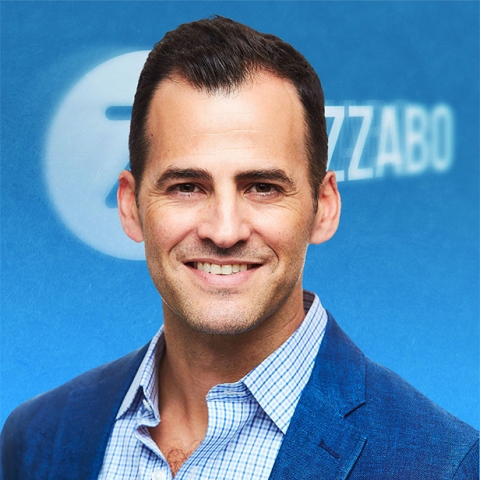Bizzabo’s Alon Alroy on Cracking the Hybrid Code

Good luck trying to have a conversation about events in 2021 without using the word “hybrid.” The consensus is that a vast majority of conferences, conventions and trade shows will incorporate a virtual element when returning face-to-face, most convening in-person for the first time since 2019. Dig beyond that general thought process, though, and the specifics are a bit hazy. “There’s a reason you’re hearing about those generalities,” said Alon Alroy, co-founder, CMO and CCO of Bizzabo. “No one has cracked it yet.”
Truth be told, that code for hybrid success might be different for each event. In an age when customization is expected, a one-size-fits-all solution is seemingly unlikely. Just as with the conferences we’re used to attending, there will be trial and error. Those companies able to adapt quickly and understand their audience’s needs will be in a position to thrive for years to come.
While the future is unknown — and we mean really unknown — don’t bet against Bizzabo being a guiding light toward the new era of events. The popular events platform, whose client roster includes Dow Jones, Conde Nast, Forbes and Husbpot's INBOUND, was among the first to transition effectively to virtual when the pandemic struck last spring.
The company translated that momentum into a funding cycle that netted $138 million late last year. More recently, in February 2021, Bizzabo announced it had joined the Adobe Exchange Partner Program and launched its Global Partner Program, which grants access to Bizzabo’s platform and other resources to improve marketing, business development, sales and support. “We are committing ourselves to enabling a partner community that helps clients create impactful and engaging experiences while transforming events into their business growth engine,” Alroy said.
At the height of Bizzabo’s influence, Alroy shared his perspective on how technology and face-to-face events will merge.
Let’s start with the $1 million question: What will hybrid events look like?
Hybrid will be about more than just having a virtual and an in-person audience, it will be about creating a shared and integrated experience for [both] that is uniquely tailored to how and where individuals are attending. This means sessions where virtual and in-person attendees can book meetings with one another; it means live-streamed sessions that offer chat and community elements for virtual attendees and it means doubling-down on the longevity of an event so that its sessions and community can exist year-round — not just in the small amount of time around the event itself. This is an exciting new opportunity for event organizers and marketers to rethink the attendee experience with a more holistic point of view.
Will in-person events be the same again?
My prediction is that hybrid will be the new standard in events. While attendees and organizers alike miss in-person experiences, we cannot overlook the benefits of virtual — from greater audience reach to more robust data and insights. So, I believe that element will never go away.
You also have to take into account the comfort of your attendees. Even after the vaccine is widely available, it’s likely that it will take more time for people to feel comfortable going to in-person events. That’s why hybrid will become the new normal, because it allows those who are comfortable to attend in-person while creating an opportunity for those who are less comfortable or unable to join to share in the experience virtually. Events will not be the same, and due to the wave of event technology innovation of the past year, they’ll hopefully be better.
What are some of the biggest mistakes the industry has made during the pandemic? Have you seen a learning curve as it has gone on?
At first, I believe we all underestimated the severity of COVID as well as how long we’d be facing it. But it didn’t take long for us to come to terms with it and change course. I would also say that one of the largest learning curves was shifting to virtual. Many companies were looking for a quick solution to help them shift their event online, but it’s clear now that the virtual element is here to stay. That means it’s time for event organizers to start investing in the long term and looking for future-proof hybrid solutions
In some ways, was it a good thing to go through the pandemic to push events more virtual? Or would it have happened anyway?
COVID was the “black swan” of the event technology space. It would have taken the industry 10 years to go through the technology developments we saw in the past year. So yes, I do think it was inevitable that events embrace virtual. I would also agree that virtual events were a silver lining of the pandemic. If we look at the major benefits of virtual events — audience reach, accessibility, longevity, data and so much more — it’s hard to deny that digital experiences have opened up a whole new world of opportunity for events.
What's the next great events solution no one has created yet?
A platform that creates really impactful experiences for both virtual and in-person audiences. And it just so happens that we’re already building it. Stay tuned for updates!
Don’t miss any event-related news: Sign up for our weekly e-newsletter HERE and engage with us on Twitter, Facebook, LinkedIn and Instagram!


Add new comment